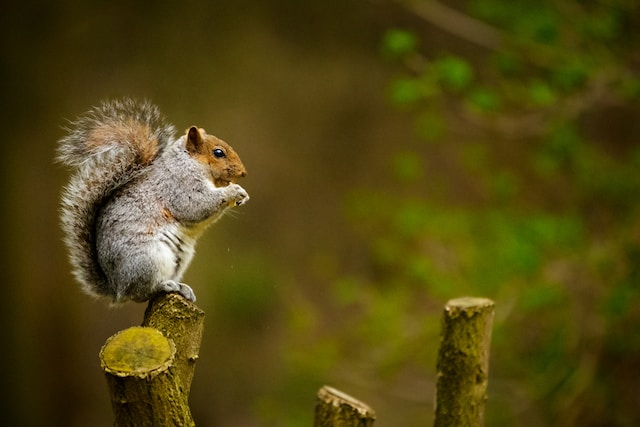Introduction: As human populations expand and encroach upon natural habitats, wildlife encounters with human food become more common. Squirrels, with their nimble agility and inquisitive nature, are no strangers to exploring the world of human fare. In this article, we explore the impact of human food on squirrel health and behavior, shedding light on the
Introduction: As human populations expand and encroach upon natural habitats, wildlife encounters with human food become more common. Squirrels, with their nimble agility and inquisitive nature, are no strangers to exploring the world of human fare. In this article, we explore the impact of human food on squirrel health and behavior, shedding light on the potential consequences of this unintended interaction.
- Nutritional Imbalances: A Diet Unsuited for Squirrels Human food, while palatable to us, is not necessarily appropriate for squirrels. The processed and high-calorie nature of many human foods can lead to nutritional imbalances in squirrels. Excessive consumption of items like sugary snacks, fried foods, and salty treats can disrupt their natural diet and negatively impact their health. These imbalances can lead to weight gain, malnutrition, and an increased susceptibility to diseases.
- Dependency and Foraging Skills: A Delicate Balance Squirrels are natural foragers, adept at finding and procuring their own food in their native environments. When squirrels become reliant on human-provided food, it can undermine their foraging skills and disrupt their natural behaviors. Regular handouts can create a dependency that diminishes their ability to seek out and utilize their traditional food sources. This reliance on human food can ultimately jeopardize their survival in the wild.
- Altered Social Dynamics: Conflict and Aggression Human food sources often lead to concentrated gatherings of squirrels, resulting in altered social dynamics. Competition for limited resources can escalate into aggressive behavior among squirrels, leading to territorial disputes and increased aggression towards both humans and other animals. These altered social dynamics can disrupt the natural balance within squirrel populations and negatively impact their overall well-being.
- Health Risks: Human Food and Squirrel Digestion The digestive systems of squirrels have evolved to process a specific range of foods. When squirrels consume human food, especially items high in fat or artificial additives, it can lead to gastrointestinal distress and other health issues. Squirrels may experience diarrhea, bloating, or even more severe conditions like pancreatitis. Human food can also pose choking hazards or cause obstructions in their digestive tracts.
- Encouraging Responsible Behavior: Minimizing Human-Food Interactions To mitigate the negative impact of human food on squirrel health and behavior, it is crucial to encourage responsible behavior among humans. This includes refraining from intentionally feeding squirrels or providing them with human food. Educating the public about the importance of maintaining the natural diet and habitat of squirrels can help foster a healthier coexistence between humans and wildlife.
Conclusion: While squirrels may find human food enticing, the impact of such interactions on their health and behavior is concerning. The nutritional imbalances, dependency on handouts, altered social dynamics, and potential health risks associated with human food can disrupt the natural balance of squirrel populations and compromise their well-being. By recognizing the potential consequences and adopting responsible behavior, we can help ensure the health and longevity of these charismatic creatures in their natural habitats.
Note: This article is based on general information about the impact of human food on squirrel health and behavior. For a comprehensive understanding of specific squirrel species and their dietary requirements, it is advisable to refer to scientific studies and consult experts in the field.

















Leave a Comment
Your email address will not be published. Required fields are marked with *